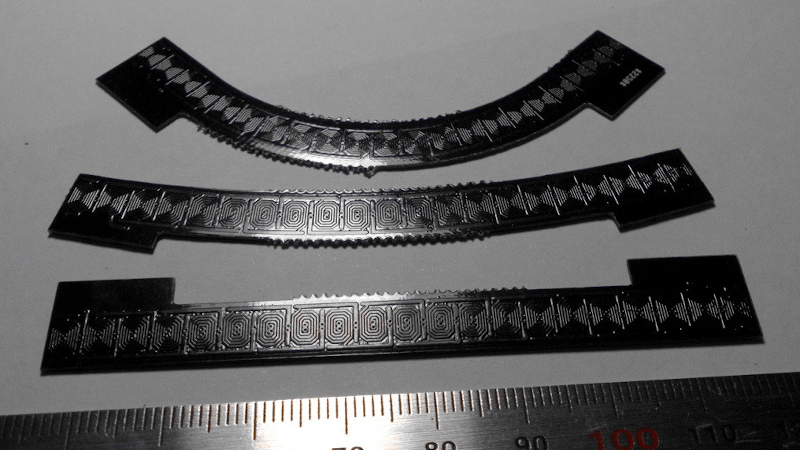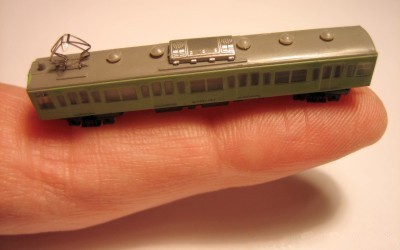PCB Linear Motors For Model Trains

Modeling a railroad is hard. Railroads are large, linear pieces of civil engineering. So many modelers are drawn to the smallest scale they can use. Recently a new scale, named T, at 1:450 has been pushing this barrier. But fitting a reliable mechanical drive mechanism and MCU board in a package this size is a challenge. In practice, even more of a problem is getting reliable electrical contact through a metal wheel on metal track (about the worst possible design for a contact).
T always seemed to us a long way out on the bleeding edge. But all that may have changed. In a recent Hackaday.io writeup, author [Martin] describes a PCB technology based linear motor system to externally drive T scale locomotives.
The system uses 4mm planar coils. The underside of the PCB has another coil, so the effective pitch is 2mm. With microstepping, a step of 0.25mm is possible, and trains run smoothly. Current is 3-400mA.
Since the system also guides the car, actual ‘track’ is unnecessary, and [Martin] is using printed paper covering rather than 3D track. Items like autos and boats can be automated as well. Modelers in larger scales might well use it for automated pedestrians and such.
Also an advantage, all cars are powered, so coupler reliability is a reduced issue.
This feels like it could be used for many things, far beyond model railroads. It’s an option for any time you need to move a few mm scale object in 2D.
Image courtesy David K. Smith, CC BY-SA 3.0
Post a Comment